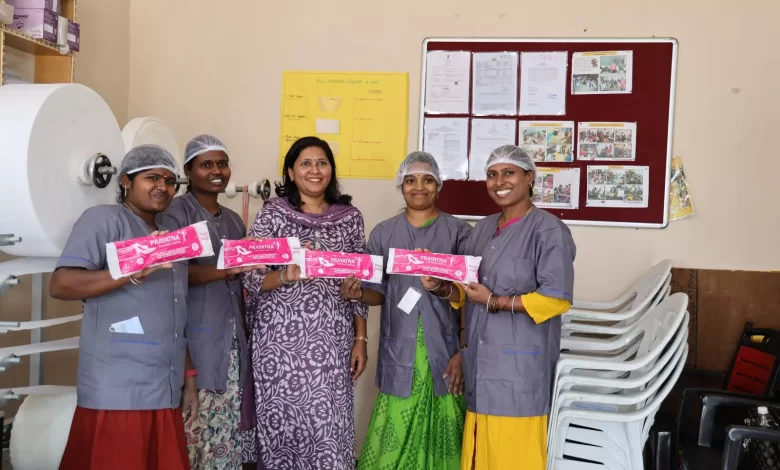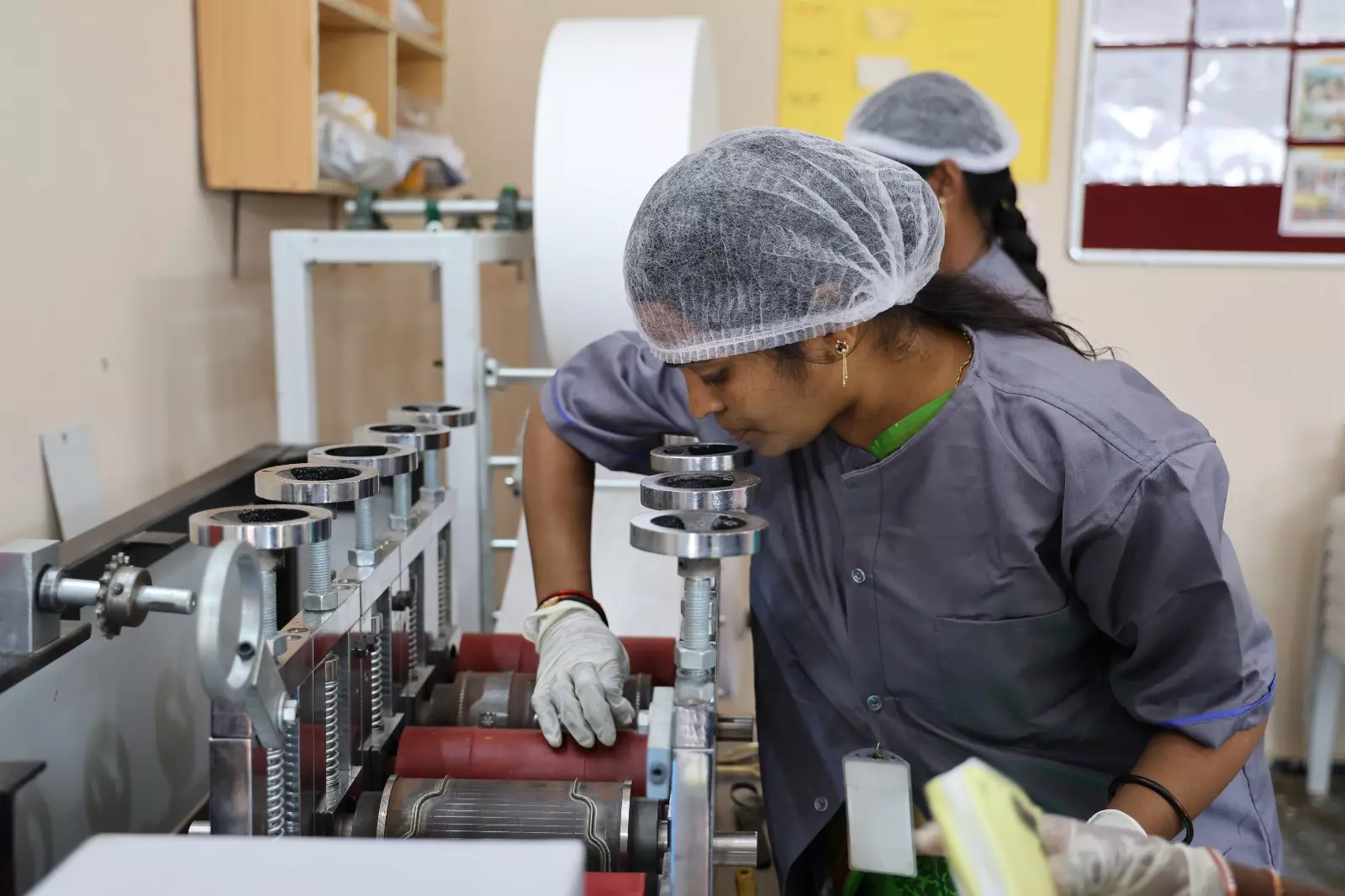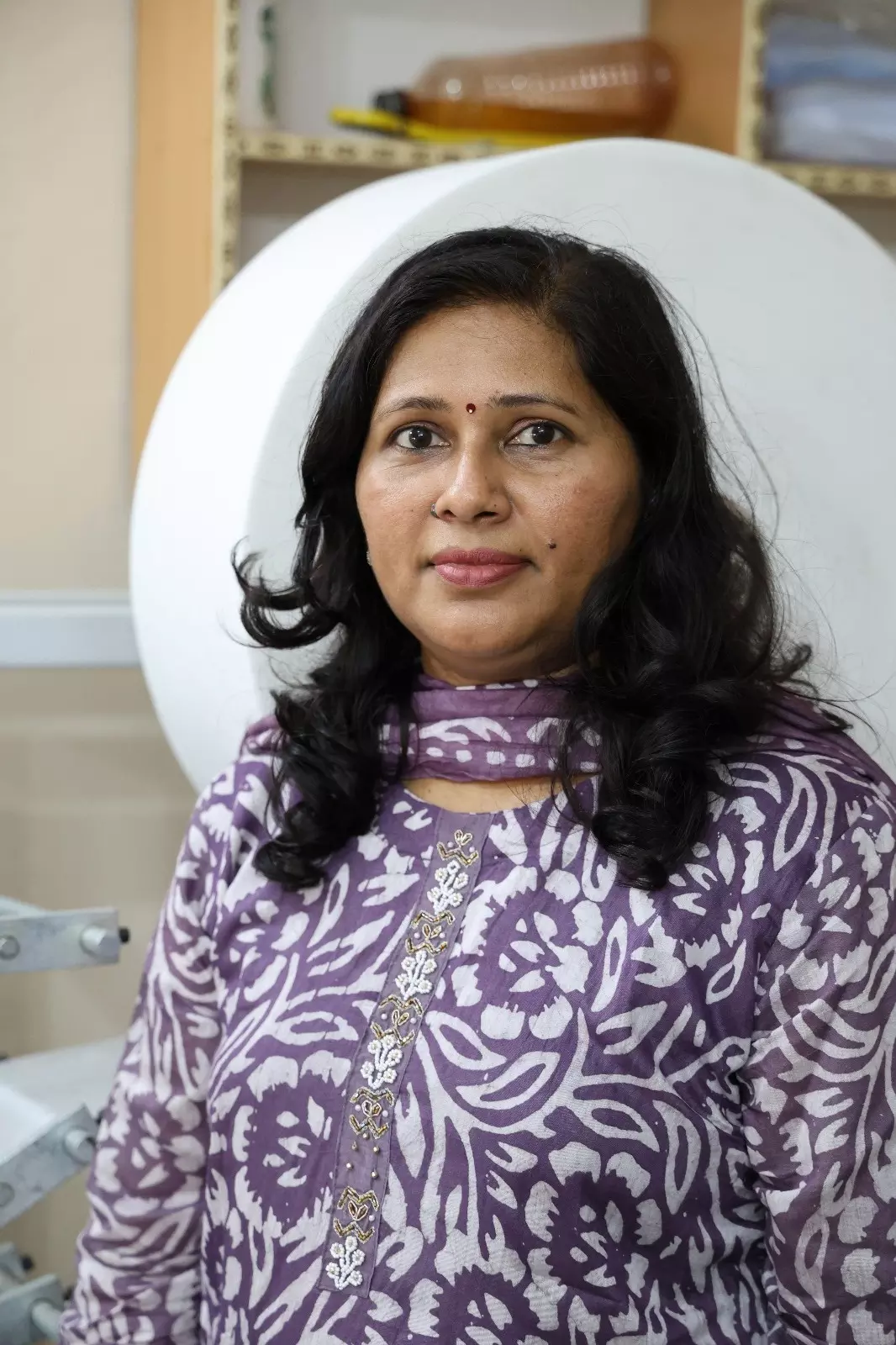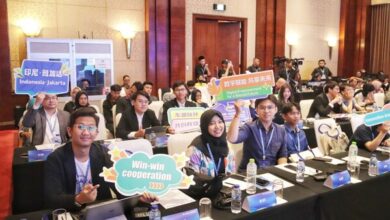Chinna Golconda Women Show the Way in Menstrual Hygiene and Entrepreneurship

Hyderabad: Chinna Golconda village in Shamshabad mandal of Rangareddy district has witnessed a silent transformation. A small initiative started to support a women’s self-help group has turned into an important movement which not only empowers women but has also reshaped their communities.
A sanitary napkin making unit, Prayatnam” (an attempt), is an initiative driven by the village’s women who participants as well as leaders and decision-makers.
Manisha Patil, CSR Lead, Community Engagement, Amazon India, which is supporting the initiative, says, “When we began in 2014, our goal was to be good neighbours and partners with the communities surrounding our warehouses. “We started by assessing the community’s needs, which included women, youth, and persons with disabilities. Our model had to be holistic,” she recalled.
In the beginning, joining hands with non-profit organisations came handy to establish several community centres which offered early childhood interventions, career counselling and computer learning among other things. Soon it was evident that the community itself had to take charge to ensure sustainable empowerment. That was how the community ambassador model was born. The concept was simple — local villagers who had a strong desire and will to contribute to their community through initiatives were trained.
The sanitary napkin manufacturing unit was one of the standout successes of this model. “The idea of the unit came from the women themselves,” explained Patil.
“They wanted a local solution that would not only address menstrual hygiene but also provide them with a livelihood.”
Sharing her perspective, community ambassador and unit leader Shravanthi saud: “Prayatnam symbolises our collective effort. When our husbands lost their jobs during Covid, we managed to keep our families afloat. We learned new skills, from stitching masks for the government to making sanitary napkins. Becoming breadwinners was empowering.”

From technical know-how of production to marketing and branding, these women get comprehensive training. Patil said, “From production to packaging and selling, these women have mastered it all. Today, they confidently meet local officials and corporate representatives to market their products. We wanted them to own the entire process.”
Besides financial empowerment, this initiative has made them self-reliant and confident. These women, who would shy away from talking about menstrual hygiene even with family members, have now taken on the responsibility of educating schools, PHCs about the need to use sanitary napkins.
“We visit kirana stores and local schools and explain to them as to why menstrual hygiene is crucial. It’s not just about selling a product, it’s about changing attitudes and improving health,” said Mamatha, worker at the unit.
Community ambassadors like Sharvanthi not to mention the support of the local panchayat are instrumental in making the model a huge success. “The panchayat provided the space, and we brought the expertise. Together, we ensured the programme’s success and sustainability,” Patil noted.
Over 1,800 such community centres are now operating all over the country. The collaborative efforts of corporate expertise and community needs has effectively helped scale this initiative. Patel credited this to their strong partnership with the villagers and the tireless efforts of community ambassadors.
Amazon India has also promoted women’s health and menstrual hygiene through educational programs to create awareness in adolescent girls in schools. “Addressing menstrual hygiene at an early age is crucial. It shapes healthier habits and destigmatised a natural biological process,” said Patil.
On World Menstrual Hygiene Day, the story of Chinna Golconda is a shining example of how a community can take control of their destinies if they are equipped with proper tools via corporate social responsibility models of corporate organisations.
As Patil aptly put it, “This initiative isn’t just about manufacturing sanitary napkins. It’s about creating opportunities, building confidence, and fostering a sense of ownership among women. It’s about transforming lives, one Prayatnam at a time.”




